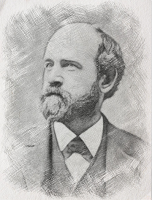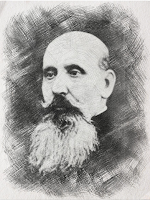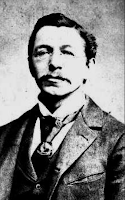As we saw in the previous posting on this subject, one of the biggest shifts in thinking that has caused massive amounts of trouble over the past couple of centuries is the shift from reason, to faith in matters pertaining to the natural order. This sounds bad to atheists and agnostics, and good to (some) theists, but the simple fact is that it’s bad for everyone.
Why? Because when you get away from reason as the basis for your understanding this world and the people in it, and go with some faith-based concepts, you’ve automatically excluded everyone who doesn’t believe precisely and exactly the way you do from the class of human beings. That means that anyone who believes differently from you is not a person, and thus has no rights. As Msgr. Ronald Knox put it, for those who think they are more “godly” than others (or better in any other way), the “ungodly” (or those whom the élite regard as inferior) have no rights that need concern the elect.
It did not end there, however. By shifting the basis of natural law from reason to faith, Msgr. John A. Ryan and others who accepted the shift (or insisted on it) were able to change the meanings of basic terms like “justice” and use that as justification for imposing their faith-based vision on the rest of society.
 |
| Henry George |
Specifically, Ryan applied Henry George’s principle of land ownership not being an individual natural right (what other kind is there . . . ?) to all forms of capital, not just land, thereby justifying taking all profits by taxation. Originating in German socialism (Schumpeter, History of Economic Analysis, op. cit., 186),taxation for social purposes and control over the economy, not abolition of nominal title, was the real goal for both George and Ryan. In The Framework of the Christian State (1932), Rev. Edward J. Cahill, S.J. (1868-1941) linked George and Ryan when analyzing George’s theories. (Cahill, The Framework of a Christian State, op. cit., 532-533)
 |
| Fr. Heinrich Pesch, S.J. |
Franz Herman Mueller (1900-1994), a student of Father Heinrich Pesch, noted that Ryan’s advocacy of confiscatory taxation to fund public works and social welfare “comes close to Henry George’s ideas.” ( Mueller, The Church and the Social Question, op. cit., 105.) “‘Unearned increments’ in the value of land” should be taxed away (ibid.), and “[u]nearned incomes through stock and commodity exchange manipulations should also be prevented by law.” (Ibid., 105-106.)
Still, despite reorienting moral philosophy along modernist lines and his “daily excursions close to excommunication,” Ryan avoided censure due to his skill at equivocation and political maneuvering. (Goldman, Rendezvous with Destiny, op. cit., 86.)
 |
| Msgr. John A. Ryan |
Although fears of excommunication were for effect, the need to prevaricate was real. This is because Ryan reinterpreted Rerum Novarum to justify a vast expansion of State power explicitly repudiated in the document itself. (Rerum Novarum, § 7.) As historian Eric Frederick Goldman (1916-1989) related,
Ryan proceeded to apply the Rerum Novarum in a way scarcely distinguishable from the Reform Darwinists of Protestants and Jews. . . . After Ryan had been hurling the Rerum Novarum at his enemies for years, a reform-minded rabbi achieved a masterpiece of superfluity by saying to the priest: “You have a very great advantage over men in my position. . . . You can hang your ‘radical’ utterances on a papal encyclical.”
“Yes,” I suppose there is something to that,” said Father Ryan, smiling. (Goldman, Rendezvous with Destiny, op. cit., 86.)
 |
| Jacob Sechler Coxey, Jr. |
Ryan’s social program was similar to that of the populist Jacob Sechler Coxey, Jr. (1854-1951), who had “leanings” toward theosophy, the principal influence on late nineteenth century New Age thought. In 1894, when Ryan was in his mid-twenties, Coxey’s widely publicized Army had marched across the country to demand inflation-financed government assistance during the Great Depression of 1893-1898. (Carlos A. Schwantes, Coxey’s Army: An American Odyssey. Lincoln, Nebraska: University of Nebraska Press, 1985.)
Social Darwinism, by the way, was influenced by the utopian and religious socialists and their emphasis on the need for social regeneration by improving or changing human nature by spiritual enlightenment, selective breeding, or some combination thereof. (Morris, American Messiahs, op. cit., 83, 121, 152, 163-165, 186, 203.)
 |
| James Cardinal Gibbons |
Ryan believed the best answer to objections his program was socialist “is the fact that the policy of public ownership is gaining ground every day in every country, and that no country now enjoying it has any thought of reverting to the other system.” (Mueller, The Church and the Social Question, op. cit., 105.) As Mueller noted, “Ryan anticipated the accusation that his program was socialistic or paternalistic, but this, he felt would be an attempt at refutation by name-calling, not deserving serious attention.” (Ibid., 106.) Despite Ryan’s dodging the question and flippant dismissal of these issues, however, important clerics and laity expressed grave doubts concerning his program. (Ellis, Life of James Cardinal Gibbons, op. cit., I.539-542.)
According to Mueller, Ryan assumed the whole message of Rerum Novarum is summed up in a single sentence from § 36 of the encyclical: “Whenever the general interest or any particular class suffers, or is threatened with harm, which can in no other way be met or prevented, the public authority must step in to deal with it.” As Mueller commented,
Ryan relates that the first time he read Rerum Novarum he was most impressed by the passage in Section 28 [Mueller used another edition of the encyclical with different numbering than the current official Vatican translation]. Actually this passage is a clear statement of the principle of subsidiarity, but at that time Ryan seems to have been fascinated by the pope’s acceptance of State intervention and overlooked the important qualifications made by Leo. . . . Ryan all through his life felt that what governments normally do, and what appears to be practically necessary, may be regarded as belonging to the proper functions of government — a rather pragmatic point of view. (Mueller, The Church and the Social Question, op. cit., 96.)
Neither was that all, as we will see in the next posting on this subject.
#30#

